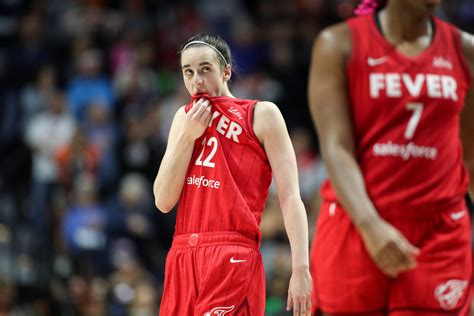
Some Chicago Bulls players found it “difficult” playing alongside Michael Jordan, according to Scottie Pippen, who suggested that Jordan’s intense competitive nature and demanding leadership style didn’t resonate with everyone on the team.
Scottie Pippen, in a recent interview, has stirred controversy by claiming that some of his former Chicago Bulls teammates “hated” playing with Michael Jordan, citing Jordan’s demanding personality and relentless competitive drive as reasons for the strained relationships. Pippen’s comments, made public via various media outlets, shed light on the internal dynamics of one of basketball’s most iconic dynasties and challenge the widely held perception of universal admiration for Jordan within the Bulls organization.
“I think a lot of players found it really difficult to play with Michael,” Pippen stated, according to the original article published by Yahoo Sports. He elaborated that some teammates struggled to adjust to Jordan’s commanding presence and the high expectations he set for everyone around him. “Maybe it’s a perception, but I think some guys really just didn’t fit in, or weren’t ready for the spotlight, or were just afraid.”
Pippen’s assertions offer a contrasting perspective to the glorified narrative often associated with the Bulls’ championship years in the 1990s. While Jordan is celebrated as a basketball icon and a driving force behind the team’s success, Pippen’s remarks highlight the potential downsides of playing alongside such a dominant personality.
The comments have sparked considerable debate among basketball analysts, fans, and former players. Some have corroborated Pippen’s claims, recalling instances of tension and friction within the Bulls locker room. Others have defended Jordan, arguing that his demanding nature was essential to pushing the team to achieve its championship goals.
The dynamics of team sports often involve complex relationships, and the Bulls’ dynasty was no exception. While Jordan’s exceptional talent and leadership are undeniable, Pippen’s statements suggest that not everyone thrived under his intense approach. Understanding these nuances provides a more complete picture of the challenges and sacrifices involved in building a championship-winning team.
Pippen’s claims are not entirely new. Over the years, anecdotal evidence and occasional reports have hinted at the difficulties some players faced in adapting to Jordan’s demanding style. However, Pippen’s direct and unequivocal statements have brought the issue to the forefront, prompting renewed scrutiny of the Bulls’ internal dynamics during their championship era.
While Pippen didn’t name specific players, his remarks have led to speculation about who might have struggled to play alongside Jordan. Some analysts have pointed to players who joined the Bulls later in their careers or those who had less prominent roles on the team as potential examples. Others have suggested that even established players may have occasionally clashed with Jordan’s intense personality.
The impact of Jordan’s leadership style on the Bulls’ overall success is a subject of ongoing debate. While some argue that his demanding nature was essential for pushing the team to reach its full potential, others contend that it may have alienated some players and created unnecessary tension.
Regardless of the specific individuals involved, Pippen’s comments underscore the importance of understanding the human element in team sports. Building a championship-winning team requires not only talent and skill but also effective communication, mutual respect, and the ability to navigate complex interpersonal dynamics.
Pippen’s perspective offers a valuable counterpoint to the often-romanticized narrative of the Bulls’ dynasty. While the team’s success is undeniable, his remarks serve as a reminder that achieving greatness can come at a cost, and that even the most successful teams are not immune to internal conflicts and challenges.
The discussion ignited by Pippen’s comments also extends to broader conversations about leadership styles in sports and other fields. Jordan’s approach, characterized by intense competitiveness and high expectations, is just one example of how leaders can motivate and inspire their teams. Other leaders may adopt a more collaborative or supportive approach, focusing on building consensus and fostering a positive team environment.
Ultimately, the most effective leadership style depends on the specific context, the individuals involved, and the goals being pursued. Understanding the strengths and weaknesses of different approaches is essential for building successful teams and achieving lasting results.
Pippen’s revelations about the Bulls’ internal dynamics serve as a reminder that even the most successful teams are composed of individuals with diverse personalities, motivations, and perspectives. Recognizing and addressing these differences is crucial for building a cohesive and high-performing team.
The legacy of the Chicago Bulls dynasty remains complex and multifaceted. While the team’s achievements are undeniable, Pippen’s comments offer a valuable glimpse into the challenges and sacrifices involved in building such a successful organization. By acknowledging the potential downsides of playing alongside a dominant personality like Jordan, we can gain a more complete and nuanced understanding of the Bulls’ remarkable journey.
Expanded Details and Context
The 1990s Chicago Bulls, led by Michael Jordan and Scottie Pippen, are widely regarded as one of the greatest dynasties in NBA history. Their six championships, achieved in two separate three-peat runs (1991-1993 and 1996-1998), solidified their place in basketball lore. However, beneath the surface of this seemingly perfect team lay complex dynamics and interpersonal relationships that occasionally bubbled to the surface. Pippen’s recent assertions, therefore, are not entirely without precedent, though they are perhaps the most direct and impactful statements to date regarding potential discord within the Bulls organization stemming from Jordan’s demanding nature.
Jordan’s unparalleled competitive drive is legendary. His relentless pursuit of perfection and his unwavering determination to win at all costs were both admired and, according to Pippen, resented by some teammates. While this intensity undoubtedly fueled the Bulls’ success, it also created a high-pressure environment that not everyone could thrive in. Jordan demanded nothing less than the best from his teammates, and those who failed to meet his expectations often faced his wrath.
This demanding leadership style, while effective in pushing the team to achieve its goals, may have also alienated some players. The constant pressure to perform, coupled with Jordan’s sometimes abrasive communication style, could have created a sense of unease and resentment among those who felt they were not being adequately appreciated or supported.
Moreover, the sheer magnitude of Jordan’s stardom often overshadowed the contributions of his teammates. While players like Pippen, Dennis Rodman, and Horace Grant were essential to the Bulls’ success, they often received less recognition and acclaim than Jordan. This imbalance could have further contributed to feelings of resentment and frustration among those who felt their efforts were not being properly acknowledged.
It’s important to note that Pippen’s comments do not necessarily reflect the views of all former Bulls players. Many of Jordan’s teammates have spoken highly of his leadership and his impact on their careers. However, Pippen’s perspective offers a valuable counterpoint to the dominant narrative, highlighting the potential downsides of playing alongside such a dominant personality.
The issue also raises questions about the nature of leadership and the different styles that can be effective in team sports. While Jordan’s demanding approach clearly worked for the Bulls, it may not be the best fit for every team or every player. Some leaders may prefer a more collaborative or supportive approach, focusing on building consensus and fostering a positive team environment. Ultimately, the most effective leadership style depends on the specific context, the individuals involved, and the goals being pursued.
Pippen’s remarks also serve as a reminder that even the most successful teams are composed of individuals with diverse personalities, motivations, and perspectives. Recognizing and addressing these differences is crucial for building a cohesive and high-performing team. Open communication, mutual respect, and a willingness to compromise are essential for navigating the complex interpersonal dynamics that can arise in any team environment.
In the wake of Pippen’s comments, there has been considerable speculation about which players may have struggled to play alongside Jordan. While Pippen has not named names, some analysts have suggested that players who joined the Bulls later in their careers or those who had less prominent roles on the team may have been more likely to experience difficulties.
For example, players like Toni Kukoc, who arrived in Chicago with high expectations but often found himself in a supporting role, may have occasionally clashed with Jordan’s demanding style. Similarly, role players like Bill Wennington or Jud Buechler, who were primarily tasked with providing energy and defense off the bench, may have felt overshadowed by Jordan’s dominance.
However, it’s important to avoid making definitive judgments about specific individuals without more concrete evidence. The dynamics of team sports are complex and multifaceted, and it’s impossible to know for certain how any particular player felt about playing alongside Jordan.
Regardless of the specific individuals involved, Pippen’s comments underscore the importance of understanding the human element in team sports. Building a championship-winning team requires not only talent and skill but also effective communication, mutual respect, and the ability to navigate complex interpersonal dynamics.
The legacy of the Chicago Bulls dynasty remains complex and multifaceted. While the team’s achievements are undeniable, Pippen’s comments offer a valuable glimpse into the challenges and sacrifices involved in building such a successful organization. By acknowledging the potential downsides of playing alongside a dominant personality like Jordan, we can gain a more complete and nuanced understanding of the Bulls’ remarkable journey.
The ongoing debate surrounding Pippen’s remarks highlights the enduring fascination with the Bulls’ dynasty and the complex relationships that shaped their success. While Jordan will always be remembered as the driving force behind the team’s championships, Pippen’s perspective serves as a reminder that even the greatest players cannot achieve greatness alone.
FAQ Section
Q1: What exactly did Scottie Pippen say about Michael Jordan and the Chicago Bulls?
A1: Scottie Pippen stated that some players on the Chicago Bulls “hated” playing with Michael Jordan. He suggested that Jordan’s demanding personality and intense competitive drive made it “difficult” for some teammates to thrive alongside him. He implied that some players were either not ready for the “spotlight” or found it difficult to fit in with Jordan’s leadership style.
Q2: Did Scottie Pippen name any specific players who had issues playing with Michael Jordan?
A2: No, Scottie Pippen did not explicitly name any specific players who struggled to play with Michael Jordan. His comments were general, referring to “a lot of players” and suggesting a broader issue of compatibility with Jordan’s demanding approach.
Q3: What is the context of Scottie Pippen’s comments?
A3: The context of Scottie Pippen’s comments stems from discussions surrounding the Chicago Bulls’ dynasty of the 1990s and the leadership style of Michael Jordan. While the Bulls are celebrated for their six championships, Pippen’s remarks offer a contrasting perspective, suggesting that not everyone on the team universally admired or enjoyed playing with Jordan due to his intense competitiveness and high expectations. This provides a more nuanced view of the team’s internal dynamics.
Q4: How have people reacted to Scottie Pippen’s statements?
A4: Reactions to Scottie Pippen’s statements have been varied. Some analysts and fans have corroborated Pippen’s claims, citing past instances of tension within the Bulls locker room. Others have defended Jordan, arguing that his demanding nature was essential for pushing the team to achieve its championship goals. The comments have sparked considerable debate about leadership styles and the human element in team sports.
Q5: What does this reveal about the Chicago Bulls dynasty?
A5: Scottie Pippen’s remarks reveal that even within highly successful teams like the Chicago Bulls, complex interpersonal dynamics and potential conflicts can exist. While Michael Jordan is widely regarded as a basketball icon and a driving force behind the Bulls’ success, Pippen’s statements highlight the potential downsides of playing alongside such a dominant personality and the challenges some players faced in adapting to his demanding style. It paints a more comprehensive picture of the Bulls’ journey to greatness, acknowledging both the triumphs and the underlying tensions.
Further Elaboration and Contextualization:
To further understand the context surrounding Pippen’s remarks, it’s important to consider the broader historical narrative of the Chicago Bulls dynasty and the evolution of leadership styles in sports.
-
The “Jordan Rules” and Defensive Focus: Doug Collins, the Bulls’ coach before Phil Jackson, implemented a defensive strategy known as the “Jordan Rules,” which primarily focused on forcing other teams to beat them with someone other than Jordan. This placed enormous pressure on Jordan to score and win games, potentially exacerbating his demanding nature towards teammates.
-
Phil Jackson and the Triangle Offense: Phil Jackson’s arrival and implementation of the triangle offense shifted the focus from individual dominance to team-oriented play. While Jordan remained the focal point, the triangle offense emphasized ball movement and player involvement, which may have helped to alleviate some of the pressure on individual players. However, this shift didn’t necessarily eliminate all tension, as some players still may have struggled to adapt to the demanding requirements of the system and Jordan’s high expectations.
-
Dennis Rodman’s Arrival: The addition of Dennis Rodman in 1995 brought a unique dynamic to the team. Rodman’s unconventional personality and rebounding prowess were instrumental in the Bulls’ second three-peat, but his off-court antics and sometimes unpredictable behavior could have added another layer of complexity to the team’s chemistry.
-
The Last Dance Documentary: The ESPN/Netflix documentary “The Last Dance” provided an inside look at the Bulls’ 1997-98 season, highlighting both the team’s successes and the internal conflicts that existed. While the documentary generally portrayed Jordan in a positive light, it also showed instances of his demanding behavior and the toll it took on some of his teammates.
-
Evolving Leadership Styles: Leadership styles in sports have evolved over time. While demanding and authoritarian approaches were more common in the past, contemporary leaders often emphasize collaboration, communication, and player empowerment. This shift reflects a growing recognition of the importance of fostering a positive team environment and building trust among players.
-
The Impact of Social Media: The rise of social media has amplified the voices of athletes and provided them with a platform to share their perspectives and experiences. Pippen’s comments are a reflection of this trend, as he is using his platform to offer a more candid and unfiltered account of his time with the Bulls.
-
Jordan’s Post-Playing Career: Jordan’s post-playing career, including his ownership of the Charlotte Hornets, has provided further insights into his leadership style. His tenure as an owner has been met with mixed reviews, with some criticizing his management decisions and his sometimes aloof demeanor.
Pippen’s comments should be viewed within this broader historical and cultural context. They are not simply a personal attack on Jordan, but rather a reflection of the complex dynamics that existed within one of basketball’s most iconic dynasties. They serve as a reminder that even the most successful teams are composed of individuals with diverse personalities, motivations, and perspectives, and that navigating these differences is essential for achieving lasting success.
The ongoing discussion surrounding Pippen’s remarks also highlights the enduring fascination with the Chicago Bulls dynasty and the complex relationships that shaped their success. While Jordan will always be remembered as the driving force behind the team’s championships, Pippen’s perspective serves as a reminder that even the greatest players cannot achieve greatness alone. The article offers a deeper understanding of the complexities within a high-achieving team.









